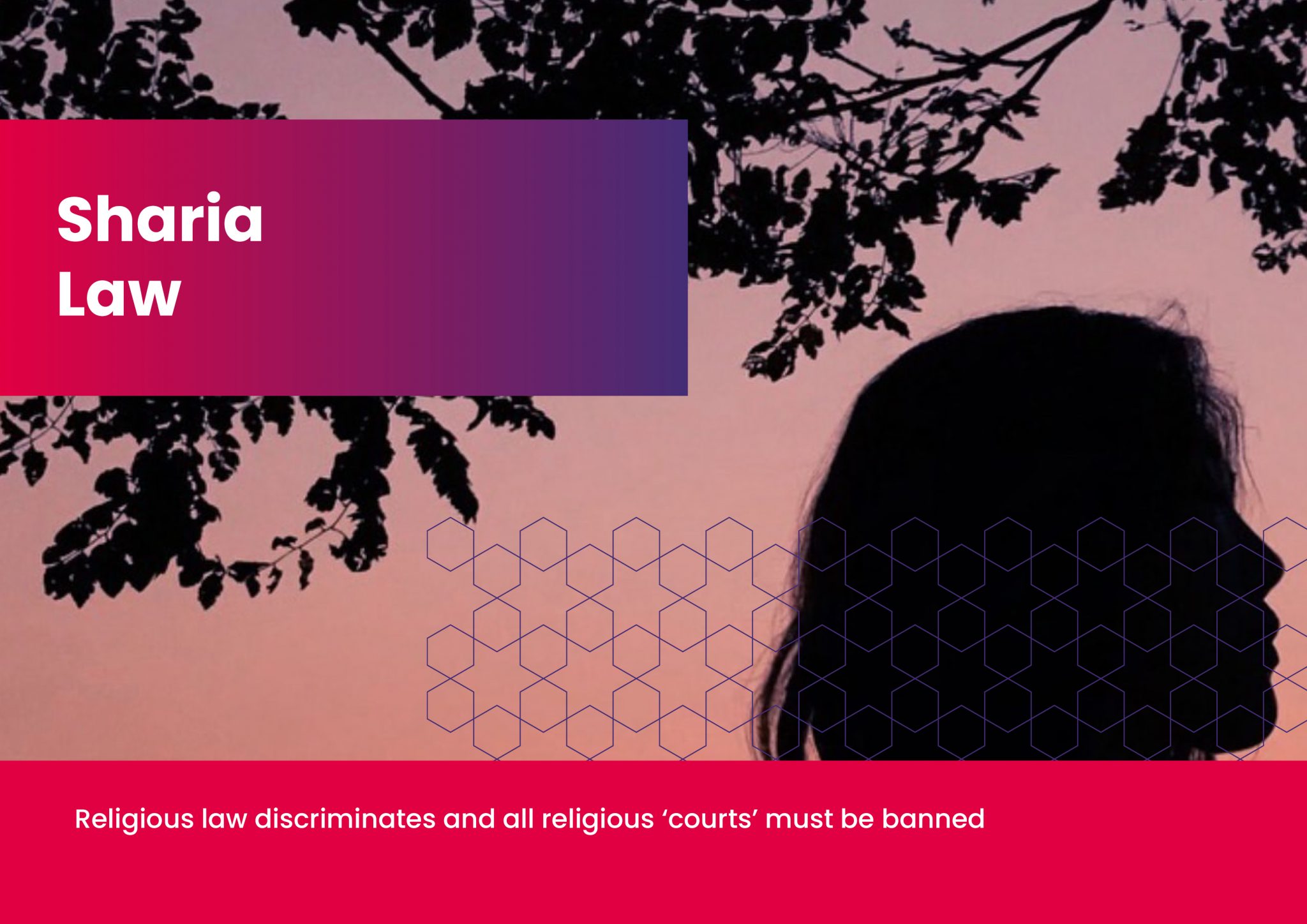Sharia Law: A Comprehensive Guide To Understanding Its Principles And Impact
When it comes to Sharia law, people often have misconceptions and questions swirling around in their heads. Sharia law isn't just a set of rules; it's a way of life for millions of Muslims worldwide. From governing personal matters to shaping societal norms, this legal system has a profound impact on both individuals and communities. But what exactly is Sharia law, and how does it work in today's world? Let’s dive deep into the subject and uncover the truth behind the headlines.
Sharia law has been a topic of intense debate and discussion in recent years, especially with the rise of globalization and cultural exchanges. It’s not just about religion; it’s a comprehensive framework that touches on everything from family law to criminal justice. But here’s the deal: not all Muslim-majority countries implement Sharia law in the same way. The nuances and interpretations vary widely, making it essential to understand the context in which it operates.
As we explore this topic, we’ll break down the key principles of Sharia law, its historical roots, and how it influences modern societies. Whether you’re curious about its role in family matters, financial systems, or even international relations, this article aims to provide clarity and insight. So grab a cup of coffee, sit back, and let’s unravel the complexities of Sharia law together!
Read also:Impractical Jokers Joe Gatto Accused By Second Woman A Former Employee Of Inappropriate Behavior Exclusive
What Exactly is Sharia Law?
Sharia law is essentially the moral and religious code of conduct for Muslims. It serves as a guidebook for daily living, covering everything from prayer and charity to marriage and inheritance. Think of it as a roadmap that helps believers navigate life according to Islamic teachings. But here’s the kicker: Sharia isn’t just about legal rulings; it’s deeply rooted in faith and spirituality.
Derived from the Quran and the Hadith (the sayings and actions of the Prophet Muhammad), Sharia law is designed to promote justice, equality, and compassion. However, its application can differ based on cultural, historical, and regional factors. For example, some countries adopt a more liberal interpretation, while others enforce stricter rules. This diversity is what makes Sharia law such a fascinating yet complex subject.
Key Principles of Sharia Law
To truly grasp Sharia law, you need to understand its core principles. Here’s a quick rundown:
- Faith: Belief in one God (Allah) and the teachings of Islam.
- Worship: Practices like prayer, fasting, and pilgrimage.
- Charity: Giving to those in need as a form of spiritual purification.
- Justice: Promoting fairness and protecting the rights of all individuals.
- Family: Strengthening family bonds and ensuring the well-being of children.
These principles work together to create a holistic approach to life, where spirituality and practicality go hand in hand. But remember, the interpretation of these principles can vary depending on the context.
The Historical Roots of Sharia Law
Sharia law didn’t just appear overnight. It has a rich history that dates back to the time of the Prophet Muhammad. During the 7th century, the Quran was revealed, providing the foundation for Islamic teachings. Over time, scholars and jurists developed a system of jurisprudence known as Fiqh, which interprets and applies Sharia principles to real-life situations.
Throughout history, Sharia law has evolved to address changing social, economic, and political conditions. Different schools of thought emerged, each offering unique perspectives on how to implement Sharia. For instance, the Hanafi, Maliki, Shafi’i, and Hanbali schools all have their own methodologies and interpretations. This diversity reflects the dynamic nature of Sharia law and its ability to adapt to different environments.
Read also:Mookie Betts The Star Who Redefined Baseball Excellence
How Sharia Law is Applied Today
In today’s world, Sharia law is implemented in various ways across different countries. Some nations, like Saudi Arabia and Iran, enforce Sharia as the primary legal system, while others incorporate it into their legal frameworks alongside secular laws. For example, in Indonesia, Sharia law is applied in certain regions, particularly in Aceh, but not nationwide.
Here are a few examples of how Sharia law is applied in modern societies:
- Family Law: Governing issues like marriage, divorce, and child custody.
- Financial Systems: Promoting ethical banking and investment practices.
- Criminal Justice: Addressing crimes and prescribing punishments.
It’s important to note that the implementation of Sharia law is often influenced by local customs and traditions, which can lead to variations in practice.
Common Misconceptions About Sharia Law
Let’s be real: there are a ton of misconceptions floating around about Sharia law. Some people think it’s all about harsh punishments and restricting women’s rights. While certain practices may raise eyebrows, it’s crucial to separate fact from fiction. Here are a few common myths debunked:
- Myth 1: Sharia law is all about harsh punishments. Fact: Only a small portion of Sharia law deals with criminal justice, and even then, the focus is on rehabilitation and deterrence.
- Myth 2: Sharia law oppresses women. Fact: Sharia law promotes gender equality and protects women’s rights, though cultural practices may sometimes overshadow these principles.
- Myth 3: Sharia law is incompatible with democracy. Fact: Many Muslim-majority countries successfully combine Sharia principles with democratic governance.
Understanding these misconceptions is key to fostering mutual respect and dialogue between cultures.
Addressing Criticisms of Sharia Law
Of course, no legal system is perfect, and Sharia law is no exception. Critics often point to issues like human rights and freedom of expression as areas of concern. However, it’s important to recognize that these criticisms are not universal and may reflect specific interpretations or implementations of Sharia.
For example, some countries have reformed their Sharia-based legal systems to align with international human rights standards. Others continue to work towards balancing tradition with modernity. The key is ongoing dialogue and collaboration to ensure that Sharia law serves the greater good.
Sharia Law and Human Rights
One of the most hotly debated topics surrounding Sharia law is its relationship with human rights. On one hand, Sharia law promotes values like justice, equality, and compassion. On the other hand, certain practices may appear to conflict with modern human rights standards.
Here’s the thing: the interpretation of Sharia law plays a huge role in how it interacts with human rights. Some scholars argue that Sharia principles are inherently compatible with human rights, while others believe reforms are necessary to bridge the gap. It’s a complex issue that requires careful consideration and nuanced discussions.
Case Studies: Sharia Law in Action
To better understand the impact of Sharia law, let’s look at a few case studies from around the world:
- Morocco: Sharia law is integrated into the legal system, with a focus on protecting women’s rights and promoting social justice.
- Malaysia: Sharia courts handle family and religious matters, while secular courts deal with criminal and civil cases.
- Turkey: Although a secular state, Turkey incorporates certain Sharia principles into its legal framework, particularly in areas like family law.
These examples demonstrate the diversity of Sharia law implementation and its ability to adapt to different cultural and political contexts.
Sharia Law in the Global Context
As the world becomes increasingly interconnected, Sharia law has gained global attention. Whether it’s through international agreements, cross-cultural exchanges, or media portrayals, Sharia law plays a significant role in shaping global discourse.
For instance, Islamic finance, which is based on Sharia principles, has gained popularity worldwide as a viable alternative to conventional banking. Similarly, efforts to promote interfaith dialogue and mutual understanding have helped bridge gaps between cultures and religions.
The Future of Sharia Law
Looking ahead, the future of Sharia law is likely to be shaped by ongoing developments in technology, politics, and society. As more countries grapple with issues like climate change, economic inequality, and social justice, Sharia law may offer valuable insights and solutions.
Moreover, the rise of digital platforms and social media has created new opportunities for sharing knowledge and fostering dialogue about Sharia law. By embracing innovation and collaboration, we can ensure that Sharia law continues to evolve and remain relevant in the modern world.
How Sharia Law Impacts Everyday Life
For those living under Sharia law, its impact is felt in every aspect of daily life. From the way people dress to the foods they eat, Sharia principles guide their actions and decisions. But it’s not just about following rules; it’s about living a life of purpose and meaning.
Here are a few examples of how Sharia law influences everyday life:
- Dietary Practices: Following halal dietary guidelines ensures that food is prepared in accordance with Islamic teachings.
- Workplace Ethics: Promoting honesty, integrity, and fairness in professional settings.
- Community Engagement: Encouraging acts of kindness and service to others.
By embedding these values into daily life, Sharia law helps create a sense of community and shared purpose.
Challenges and Opportunities
Like any legal system, Sharia law faces challenges in the modern world. Issues like globalization, technological advancements, and shifting social norms require new approaches and solutions. However, these challenges also present opportunities for growth and innovation.
For instance, the development of Sharia-compliant technologies and financial products has opened up new avenues for economic empowerment. Similarly, initiatives to promote education and awareness about Sharia law can help dispel myths and foster greater understanding.
Conclusion: Embracing Sharia Law in the Modern Era
In conclusion, Sharia law is a dynamic and evolving legal system that continues to shape the lives of millions of people worldwide. From its historical roots to its modern applications, Sharia law offers valuable insights into the intersection of faith, culture, and governance.
To truly understand Sharia law, it’s essential to approach it with an open mind and a willingness to learn. By dispelling misconceptions and engaging in meaningful dialogue, we can build bridges between cultures and promote mutual respect.
So what’s next? We encourage you to share your thoughts and questions in the comments below. Whether you’re a student, researcher, or simply curious about Sharia law, your input is valuable. Together, we can continue to explore this fascinating subject and uncover its many layers.
Table of Contents
- What Exactly is Sharia Law?
- The Historical Roots of Sharia Law
- How Sharia Law is Applied Today
- Common Misconceptions About Sharia Law
- Sharia Law and Human Rights
- Sharia Law in the Global Context
- How Sharia Law Impacts Everyday Life
- The Future of Sharia Law
- Challenges and Opportunities
- Conclusion: Embracing Sharia Law in the Modern Era
Article Recommendations


